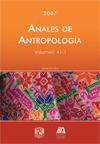Diversidad cultural y democracia en la ciudad de México: el caso de un pueblo originario
Main Article Content
Abstract
The article explores the contrast between communitarian identities and liberal constitutions, as it has been played out in independent Mexico. The villages of Mesoamerican origin (pueblos originarios) in the Federal District are a living example of communities which have not disappeared in spite of the multiple intents to do away with them. The case of San Lorenzo Acopilco is presented, summing up the government’s confiscation of its communitarian authorities, the growing proportion of non-natives (avecindados), and the village’s non-existence in the registers of the electoral institutions. On the other hand, there is a description of various communitarian practices, particularly socio-religious, and the electoral practices of the natives and the non-natives respectively. It turns out that the natives, who are the ones who participate in the communitarian practices, at the same time that they are the survivors of liberal practices, they are also the ones who participate more in the elections, especially the women. The article proposes that the same negotiations which have been practiced for the mere survival of the community are applied also in the domain of electoral politics. It is suggested that it would be worth while to find ways to restitute the village as a political subject, in order to realize the creative potential of this communitarian entity.
Downloads
Article Details
How to Cite
Hagene, T. (2009). Diversidad cultural y democracia en la ciudad de México: el caso de un pueblo originario. Anales De Antropología, 41(1). https://doi.org/10.22201/iia.24486221e.2007.1.366
Citas en Dimensions Service
Esta revista usa una licencia CC del tipo CC BY-NC-ND 3.0. Se maneja bajo el esquema de acceso abierto, con una licencia Creative Commons Attribution-NonCommercial-NoDerivs 3.0 Unported.
